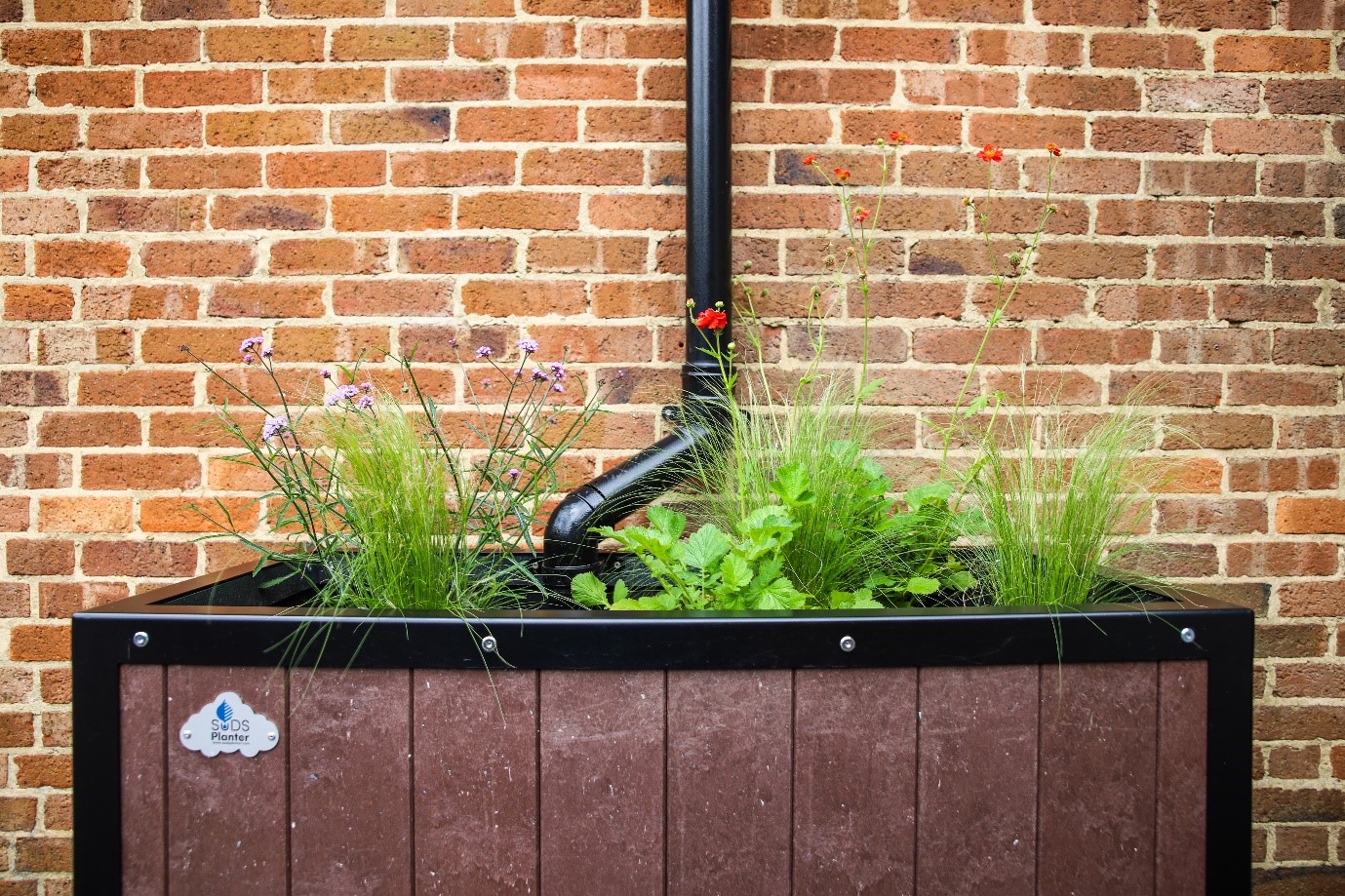‘Butt’ here’s a solution…

November 07, 2023
Trant Engineering support Southern Water with successful pilot significantly reducing sewage spills from storm overflows
The pilot scheme, undertaken by Southern Water on the Isle of Wight, has seen the installation of 200-litre water butts in a number of households and facilities in the village of Havenstreet. The water butts capture and slow the return of rainwater into the water systems, reducing pressure on storm overflows and helping to reduce spills by 70%.
The project is part of a £5m investment into a number of nature-based engineering solutions for sustainable drainage systems (SuDS) to help deal with rainwater run-off from hard surfaces. The main area of focus is to slow the flow of rainwater entering the water network during heavy rainfall events.
The concept was initially trialled at one large retirement complex, where up to five tonnes of water was coming off the 800m² roof when it rained and overwhelming the combined sewer overflows (CSO). Trant Engineering commissioned 15 bespoke planters, which were in keeping with the Victorian building. These were fed from the roof gutters, taking in a significant amount of rainwater for slow release.
Drain Strain
Following this trial, slow-drain butts were offered to residents in Havenstreet. On one street, with 72% of households using them, the nearby CSO (which previously activated 27 times a year when rainfall exceeded 5mm) saw only one spill during the six-month trial. Southern Water expects the butts to keep annual incidents down to single figures.
“The focus is to slow the flow of rainwater entering the water network during heavy rainfall”
The installation of water butts allows rainwater to be captured, and a drain halfway up the receptacle slowly releases the water back into the network over a five-hour period, which prevents nearby CSOs from being overwhelmed. The water butts and planters, known as raingardens, are fed directly from the roof gutter downpipe. The model used by Southern Water has a slow-drain valve installed halfway up, which allows 50% of the water to be retained and 50% to slowly drain into the sewer, easing pressure on the sewer system and reducing storm overflows.
The Havenstreet trial was so successful, the Department for Education requested planters and water butts be installed at 13 primary schools and five academies across the Isle of Wight. For the first year of the SuDS for Schools programme, the raingarden planters were installed free of charge on most sites, supplemented with water butts.
Trant is also designing full sustainable drainage solutions to remove surface water from sites for a further two schools on the island. Its plans are to partner with the Department of Education to work with another eight schools this year, subject to a funding agreement. Southern Water also plans to carry out similar trials in Kent, Hampshire and East Sussex
Article featured in Building Engineer July / August 2023 Issue